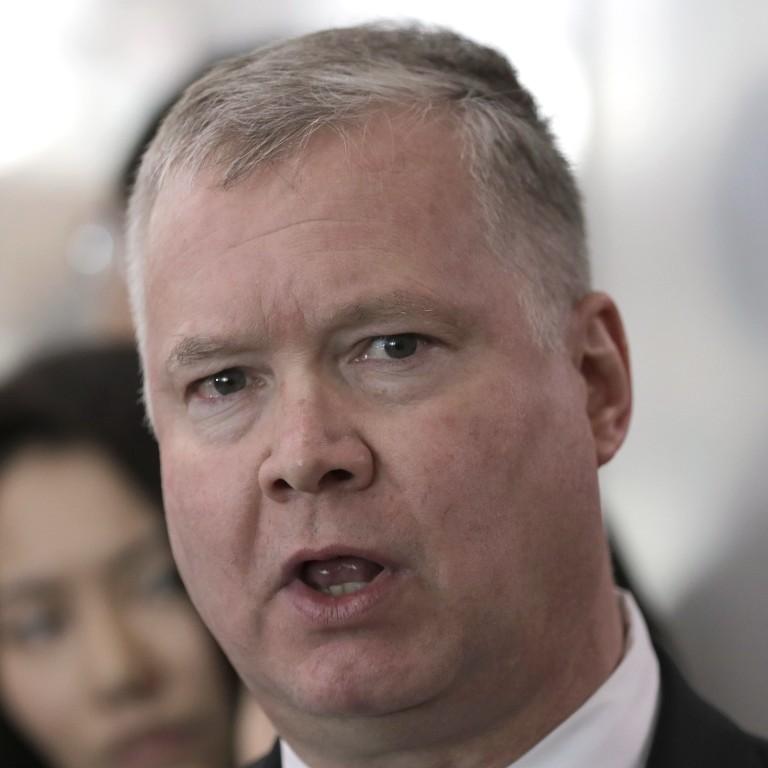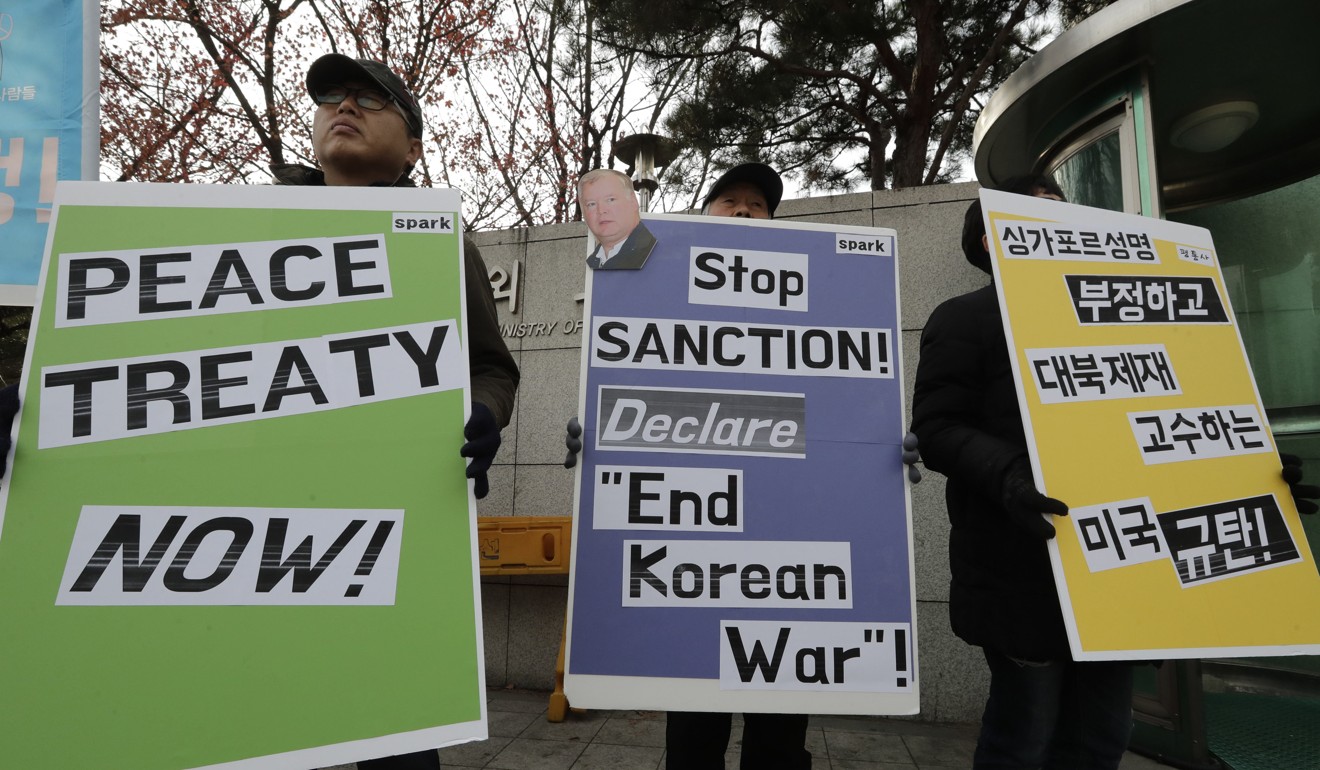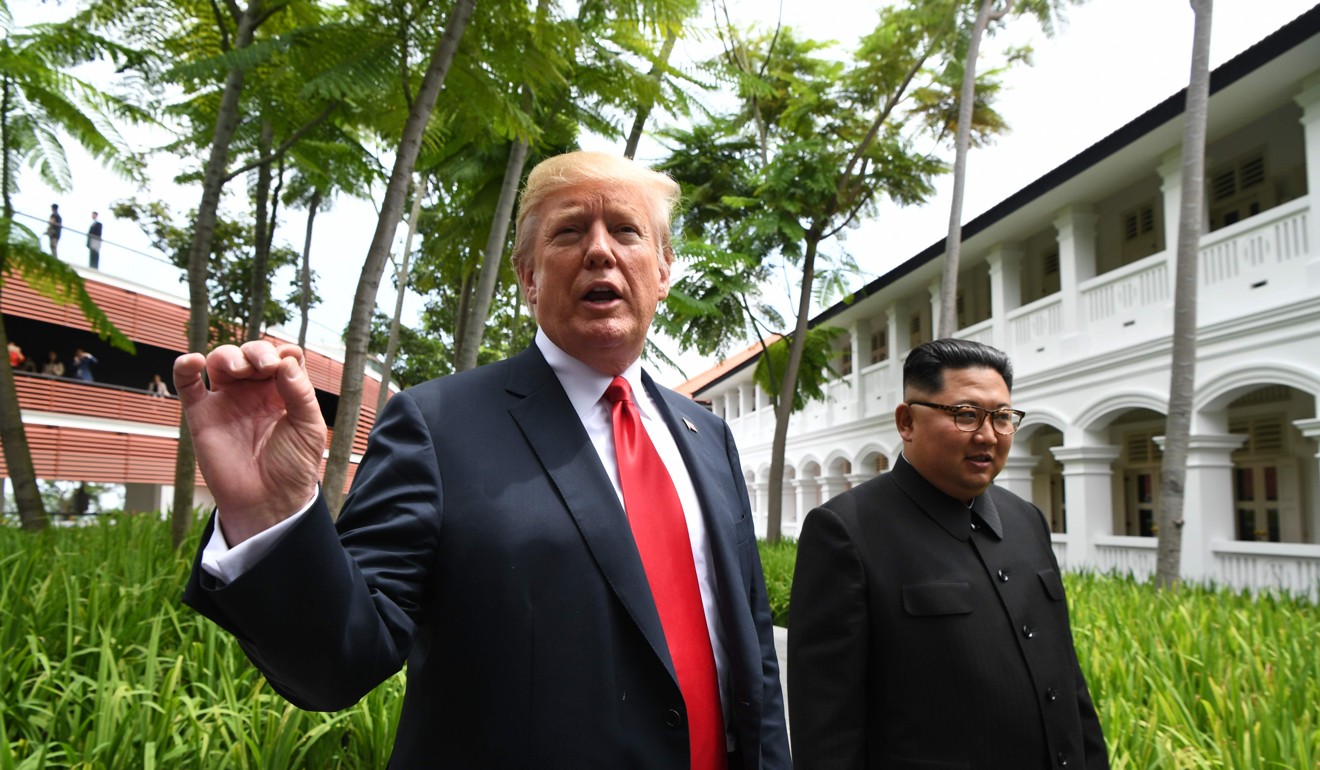
US willing to discuss trust-building measures with North Korea, says envoy Stephen Beigun
- However, Washington has no plans to ease sanctions against Pyongyang
Washington is willing to discuss trust-building initiatives with Pyongyang, a United States’ envoy said on Friday, as the Trump administration tries to revive efforts to convince Pyongyang to give up its nuclear weapons.
Following a rapid rapprochement earlier this year that culminated in a historic summit between Donald Trump and Kim Jong -un, progress has stalled with both sides accusing each other of dragging their feet and acting in bad faith.
Critics say North Korea has made no concrete commitments and is unlikely to surrender its atomic arsenal, while Washington’s policy of maintaining pressure through isolation and sanctions has left Pyongyang seething.
“The United States has no intention of easing our unilateral or United Nations sanctions” on Pyongyang, stressed Stephen Biegun, the US Special Representative for North Korea.
“However, within the context of the engagement that we have with the DPRK (North Korea), we are prepared to explore number of other things that could build trust.
“We do have a number of initiatives we’d like to look at as we begin the process of denuclearisation in North Korea.”
Biegun’s comments come a day after US Secretary of State Mike Pompeo voiced hope that a second Trump-Kim summit can be scheduled for early 2019.

The US envoy declined to detail the initiatives, but he has previously said Washington will be more lenient in enforcing a blanket travel ban in cases where Americans are heading to North Korea for humanitarian assistance.
The Trump administration has generally refused to let US aid groups operate in North Korea, seeking both to maximise pressure on the Kim regime and to ensure the safety of US citizens.
Biegun was in Seoul coordinating policies towards the North with his South Korean counterpart Lee Do-hoon, including on a highly symbolic groundbreaking ceremony due next week for reconnecting and modernising cross-border roads and railways on the peninsula.
Lee said they had agreed that the ceremony should go ahead as scheduled, as Seoul seeks to head off possible controversy over breaching sanctions against Pyongyang.

On Thursday, North Korea issued a surprisingly blunt statement saying it will never disarm unless the US removes what it calls a nuclear threat. It was the North’s latest display of displeasure over a deepening impasse in negotiations with the United States as they struggle over the sequencing of the denuclearisation that Washington wants and the removal of international sanctions desired by Pyongyang. It also raises credibility problems for the liberal South Korean government, which has claimed that Kim is genuinely interested in negotiating away his nuclear weapons.
Six months after Trump and Kim shook hands, denuclearisation a distant hope
The comments may also be seen as proof of what outside sceptics have long said: that Kim will never voluntarily relinquish an arsenal he sees as a stronger guarantee of survival than whatever security assurances the United States might provide. The statement suggests North Korea will eventually demand the United States withdraw or significantly reduce the 28,500 American troops stationed in South Korea, a major sticking point in any disarmament deal.
Kim and Trump met on June 12 in Singapore, where they agreed on a vague goal for the “complete denuclearisation”” of the Korean peninsula without describing when and how it would occur.
Additional reporting by Associated Press

.png?itok=arIb17P0)